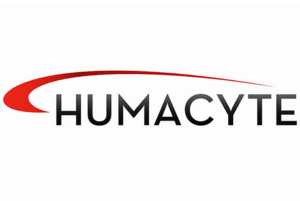 Humacyte, a clinical-stage biotechnology platform company developing universally implantable bioengineered human tissue at commercial scale, has announced that it has completed enrolment of a Phase 3 trial in haemodialysis access. The V007 trial is designed to assess the efficacy and safety of its Human Acellular Vessel (HAV) product in establishing vascular access for haemodialysis patients with end-stage renal disease (ESRD) as compared to autogenous arteriovenous fistulas (AVFs).
Humacyte, a clinical-stage biotechnology platform company developing universally implantable bioengineered human tissue at commercial scale, has announced that it has completed enrolment of a Phase 3 trial in haemodialysis access. The V007 trial is designed to assess the efficacy and safety of its Human Acellular Vessel (HAV) product in establishing vascular access for haemodialysis patients with end-stage renal disease (ESRD) as compared to autogenous arteriovenous fistulas (AVFs).
The trial is a prospective, multi-centre, randomised, comparative study in 240 haemodialysis patients suffering from ESRD in the USA. Enrolled individuals were randomly assigned to either the HAV, or an AV fistula for haemodialysis. Efficacy assessments include usability of the conduit for dialysis at six and 12 months and a comparison of secondary patency, evaluated at 12 months. The rate of dialysis-related infections in both HAV and AVF subjects will also be tracked as a secondary endpoint.
“Completing enrolment in this Phase 3 trial brings us one step closer to our goal of providing vascular access for dialysis patients that is usable more quickly after implant and reduces reliance on catheters, compared to AVF procedures,” said Shamik Parikh, chief medical officer at Humacyte. “We believe our regenerative medicine technology has the potential to transform the quality of care nephrologists are able to provide to their patients, and address the substantial failure rate and risk of infection associated with the current AV access options for haemodialysis.”
Humacyte’s HAV is described in a company press release as “a universally implantable, durable tissue-engineered vascular conduit that is designed to be highly resistant to infection” that has “over time been observed to combine with a patient’s own cells to create a living blood vessel. Utilised for arteriovenous (AV) access, the HAV “has the potential to be usable for dialysis more rapidly after implant, and result in reduced time on catheters which pose an infection risk for patients, than an AVF procedure”.
V007 investigator John Lane (University of California, San Diego Health, San Diego, USA) comments: “My experience with the use of the HVA in our vascular access (VA) population has been very positive thus far. Being involved with the clinical trial has allowed us to provide patients with the latest and greatest in technology, and hopefully gives a window into what will be in the future for haemodialysis access.”
Humacyte’s 6mm HAV for AV access for haemodialysis, it is noted in the press release, was the first product candidate to receive the US Food and Drug Administration (FDA) Regenerative Medicine Advanced Therapy (RMAT) designation in 2017 and was awarded an FDA Fast Track designation in 2014. The HAV is an investigational product and has not been approved for sale by the FDA or any other regulatory agency.










